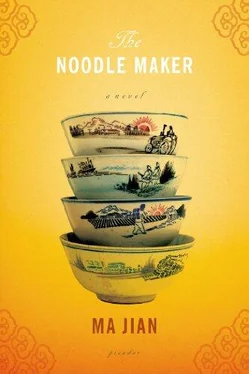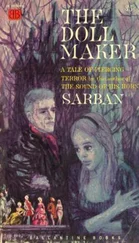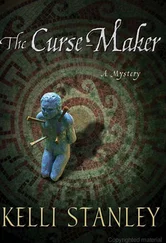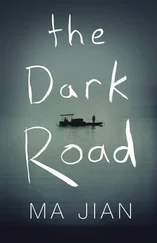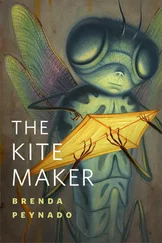The terrace feels empty without him. His absence weighs heavily on my heart. My life has become disorderly, and my room is no longer as clean as it was when he was around. Mice scuttle across the metal joists on my ceiling now, and when they get tired they drop straight onto my bed. When the dog was alive, the mice only dared take their walks late at night when we were both asleep, and they never ventured far from the skirting board. Now large spiders climb between the rusty joists, sometimes winching themselves down to steal a piece of cake. The pollution outside seems to be getting worse by the day. A thick layer of dust hovers above the terrace, and the air smells of burnt plastic. At night, I close the door and stay inside. If I were to look through my telescope, I would be able to see all the stories taking place in the crowds below, but without the dog by my side, they would seem dull and meaningless. Besides, ever since the Campaign to Learn from Lei Feng was launched, the streets have become so well ordered, there’s nothing much left to see.
Last week, I resolved to confess to my leaders all the unhealthy thoughts that have run through my mind over the past years, and promise that in the future I will align myself fully with the Party and the higher organs. In the enlarged session of the museum’s Party cell meeting, Secretary Wang asked me and the other three colleagues whose Party membership was also under consideration to present self-criticisms about our thinking this year, and admit the mistakes we have committed against the Party. The young graduate confessed that she had read the pornographic novel The Thoughts of a Young Girl , and begged the higher organs to take disciplinary action against her. The old carpenter admitted that he’d constructed the top drawer of his wooden chest from a piece of state-owned hardboard, and he asked the leaders to accept his sincere apologies. Song Juhua from the finance department was still apologising for conceiving a child out of wedlock three years ago. When my turn came, I confessed to every reactionary opinion that either I or the dog had uttered. My mind was extraordinarily clear. I told them about every mistake we had committed, without omitting a single detail. I felt an immense wave of relief. The leaders remained silent throughout my speech, and when it came to an end they just said they would have to go away and look into the matter.
Since my confession, the sad look has vanished from the survivor’s glass eyes. Although he is dead, his coat lives on, and will live on for ever. Never again will he have to hide himself from public view. He is a survivor who has seen through the red dust of the world. When he took part in the Beijing exhibition, he brought glory to our town. Everyone here started talking about my three-legged dog. People travelling here on business would hear about him as soon as they stepped off their train. Tourists would make special trips to visit him in the museum. His photo appeared in many magazines. I cut each one out and stuck them on my wall. Now at last he is able to show his face to the world. The crowds he so despised when he was alive are now his greatest admirers. Secretary Wang was so impressed by the carpenter’s ability to create such a lifelike exhibit, he singled him out for praise on several occasions, and later awarded the survivor the title of ‘Grade One Stuffed Animal’.
As dawn approaches, the writer’s thoughts come to a sudden halt, like a generator that has run out of fuel. All the images that have raced through his head disappear into a vague mist. He has experienced these moments of calm before, when his mind temporarily disconnects from reality. But the calm he feels now seems different somehow. When he closes his eyes, the characters who have lived inside him so long seem like a lump of dough being pulled by invisible hands into a thousand white threads. He sees the threads pulled tighter and tighter, until suddenly they break into a million pieces and scatter into the night sky.
‘I knew it would end like this,’ the writer mutters to himself. ‘Everything fades and dies. There’s nothing I can do about it …’
The blood donor stares at the writer’s shadow slanting on the wall behind. Now that the lights in the buildings outside have gone out, the lamps in the room seem brighter. The blood donor walks to the cassette player and turns the volume down. The writer rises to his feet, and ambles towards the toilet like a sleepwalker. As he listens to his urine splash into the bowl, he catches the smell of fish-head soup again. This time, the smell isn’t wafting from his neighbour’s kitchen, it’s coming from inside his own body. Slowly he returns to his chair. Now that the alcohol has left their organs and evaporated through their orifices and pores, the two men look as dry as shrivelled oat flakes or lumps of burnt charcoal.
‘My greatest achievement has been my ability to produce unending streams of AB blood,’ the donor croaks, pulling his vest up and pointing to his heart. ‘My blood has changed the course of my life. It has given it meaning.’
The writer’s voice is now as soft as the Requiem Mass playing on the cassette player. Through the floating melody of the aria, the blood donor hears his friend say, ‘Those people’s lives were doomed from the start. Whatever ending I choose to give their stories won’t change anything. I was just an onlooker, like that three-legged dog, hiding in the margins. You’re the only one who’ll ever hear these stories, but I’m the only one who can understand them. Only I know the pain that lies behind them.’
‘My spirit may be weak, but my flesh is strong. That’s why I fit into this town so well. But you will always be an outsider, lost in your illusions,’ the blood donor says, in a condescending tone he has rarely used these past seven years.
‘But those characters are real, they live in the same town as you and me. I may not know them very well, and they probably know even less about me. But I’m sure they exist. Or perhaps I’ve been dead for years, and those characters are just scraps of manuscript paper floating in some distant sewer.’ The writer prods his skull. Then his eyes light up for a moment and he adds, ‘I guarantee that my unwritten novel will have far more lasting value than any published book.’
‘I too have many stories to tell,’ the blood donor says. ‘They’re trapped inside me like water in a kettle. Maybe it’s time I tried pouring them out …’
The writer stands up, rests his hands on his hips and says, ‘My blood is worth nothing compared to that novel of mine.’ Then he glances around the room and starts sniffmg the air again. ‘That fish-head soup must have been excellent,’ he mumbles. ‘I can smell it even now …’
The blood donor’s cigarette is still alight. He now seems as deep in thought as a professional writer. He appears to be eager to set to work on some intellectual task. ‘When we’ve no energy left to fight against this brutal world, we turn inwards and start harming ourselves,’ he says, taking a last puff from his cigarette. He flings the stub to the ground, crushes it under the sole of his shoe, then walks next door to the writer’s study, sits down on the chair and stares at the blank page on the desk.
In the last few minutes before dawn, the writer darts about his room like a maimed, wingless ladybird. Then, without saying a word, he opens his front door, shuts it quietly behind him, and disappears down the dark stairwell.
International Praise for The Noodle Maker
“The Noodle Maker is beautifully translated from the Chinese …. These are surrealistic and often bawdy, with a frankness that veers from clinical to crude.”
— The Independent (U.K.)
Читать дальше
